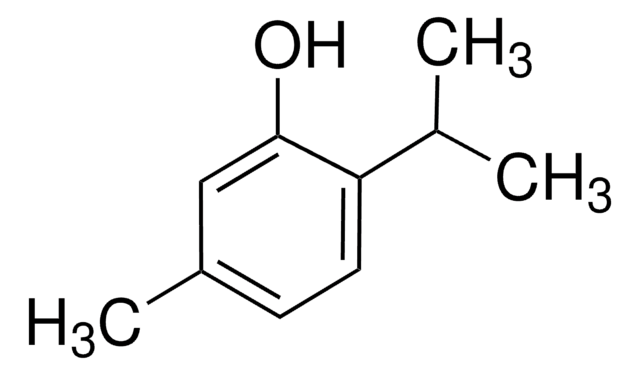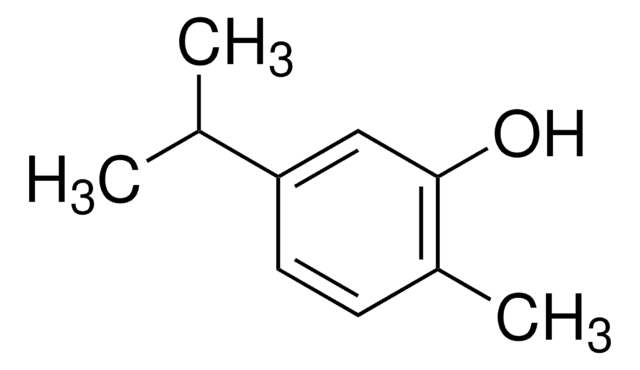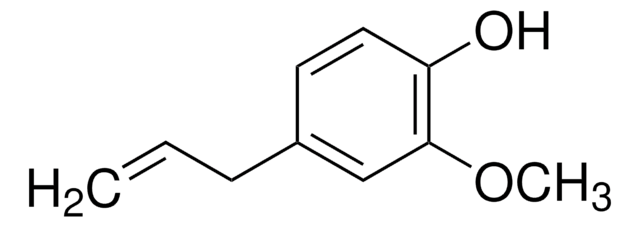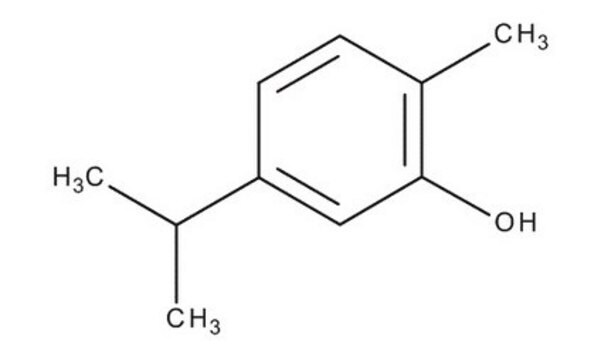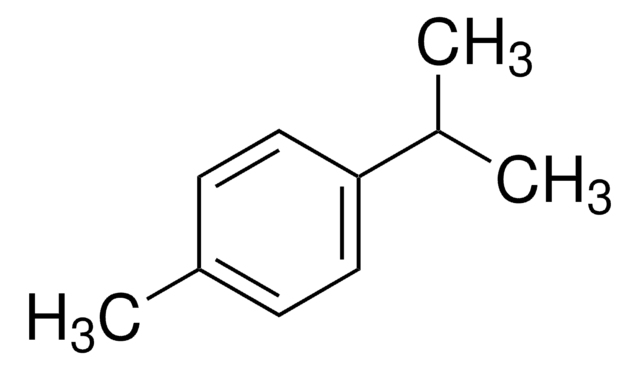282197
Carvacrol
98%
Synonym(s):
5-Isopropyl-2-methylphenol
About This Item
Recommended Products
Quality Level
Assay
98%
form
liquid
refractive index
n20/D 1.522 (lit.)
bp
236-237 °C (lit.)
mp
3-4 °C (lit.)
density
0.976 g/mL at 20 °C (lit.)
SMILES string
CC(C)c1ccc(C)c(O)c1
InChI
1S/C10H14O/c1-7(2)9-5-4-8(3)10(11)6-9/h4-7,11H,1-3H3
InChI key
RECUKUPTGUEGMW-UHFFFAOYSA-N
Gene Information
human ... UGT1A4(54657)
Looking for similar products? Visit Product Comparison Guide
General description
Application
Disclaimer
Signal Word
Danger
Hazard Statements
Precautionary Statements
Hazard Classifications
Acute Tox. 4 Oral - Aquatic Chronic 2 - Eye Dam. 1 - Skin Corr. 1B
Storage Class Code
8A - Combustible corrosive hazardous materials
WGK
WGK 3
Flash Point(F)
>212.0 °F
Flash Point(C)
> 100 °C
Personal Protective Equipment
Choose from one of the most recent versions:
Already Own This Product?
Find documentation for the products that you have recently purchased in the Document Library.
Customers Also Viewed
Our team of scientists has experience in all areas of research including Life Science, Material Science, Chemical Synthesis, Chromatography, Analytical and many others.
Contact Technical Service